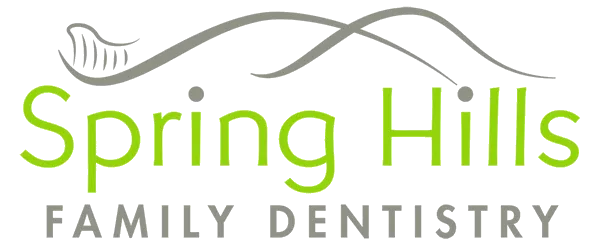
Does the thought of a visit to your dentist's office make you feel nervous or anxious?
If you suffer from dental anxiety, you are not alone. Nearly 40 million Americans have some level of dental phobia. Sedation dentistry allows our patients to become fully relaxed for the duration of their time in our office, while experiencing little to no discomfort.
In general, most people have an idea of what sedation dentistry (or ‘sleep dentistry’) is and how it can be beneficial for patients with dental anxiety.
Unfortunately, there is a good deal of misinformation online about visiting a sedation dentist that can increase anxiety for patients and keep them from making timely visits for dental care.
Patients with dental anxiety might avoid visiting the dentist for checkups and procedures because there may be associations of fear and discomfort with the sights, sounds, and smells of the dentist's office.
Even more patients avoid restorative dental repairs, such as dental crowns or creating their dream smile with cosmetic dentistry, because of dental anxiety. By the time a patient finally makes it to the dentist’s office, they may require extensive treatments or repairs.
While sedation dentistry suffers from negative misconceptions, there are multiple benefits for patients which allow them to experience a positive dentist visit.
Here are the facts about 5 of the most common dental sedation myths:
1. There is only one kind of sedation available – For some people, the idea of “painless dentistry” conjures up images of a sharp-needled syringe filled with numbing agent. Luckily, truly painless dentistry can be achieved through appropriate sedation and oral numbing methods.
Patients can benefit from the following forms of sedation:
Inhaled Minimum Sedation (or “nitrous oxide”) – Nitrous oxide, or ‘laughing gas’, is inhaled through a small mask placed over the nose, allowing the amount of gas to be carefully controlled. This is the least sedating method, and it wears off fast, allowing the patient to drive themselves home after a dental visit. All other sedation methods require the patient to provide a driver or mode of transportation to get home safely.
Oral Sedation – This type of minimal to moderate sedation is the most common associated with sedative dentistry. You may receive 1-2 doses of an anti-anxiety drug such as Valium which works by producing a calming effect on the brain and nerves. You may feel drowsy but will be able to communicate. If a patient does fall asleep, they can be easily awakened.
IV Sedation – With this type of sedation, you will receive the sedative intravenously, allowing your dentist or dental technician to precisely control the amount of sedative.
General Anesthesia – At this level of sedation, the patient is fully unconscious and is unable to respond or speak to others. Only an anesthesiologist can provide this type of safe sedation, and not all dentist offices have an anesthesiologist on staff.
In general, nitrous oxide and oral sedation are offered for routine dental maintenance and procedures, while IV (intravenous) sedation and general anesthetic are more appropriate for oral surgery or intensive procedures.
2. You won’t be in control – One of the top benefits appreciated by sedation dentistry patients is the ability to remain awake and aware in a very relaxed state of mind, allowing them to participate as needed during the procedure and provide feedback to the dentist and team.
With the lighter forms of dental sedation, you can rest assured that you’ll be aware of what’s happening from the beginning to end of your procedure.
3. Dental sedation is only for complex procedures – While deeper levels of sedation are useful during intensive procedures, patients of all kinds can enjoy the benefits of light sedation. From a basic dental cleaning and polishing to simply having a wisdom tooth removed, dental sedation has many applications.
4. Injections are required – Many patients suffer from anxiety and phobias about needles and syringes, which prevents them from taking care of necessary dental work when its most needed. However, there options for injectable sedatives such as anti-anxiety medication in pill form, computer-controlled dosing, and in some cases electrical nerve stimulation via Transcutaneous Electrical Nerve Stimulation (TENS).
5. Dental sedation is only for people with severe dental anxiety – Sedation dentistry has many applications beyond reducing anxiety and fear for patients. Appropriately administered sedatives can help increase patient cooperation and comfort, reduce involuntary muscle movements, help control the gag reflex, and reduce memories of the procedure.
These can benefit people with special needs or neurological issues, young children and teens, or anyone else who needs a little help with being calm and still in a dentist’s chair.
Who Isn’t a Candidate for Dental Sedatives?
Sedation dentistry offers excellent anesthetic options for many people, but it isn’t for everyone. Patients who are pregnant, those who have medical issues that would worsen with sedation, or who are allergic to the sedative offered may not be ideal candidates.
Your dentist will consult with you to determine the best approach for your dental care needs.
What to Expect with Sedation Dentistry at Spring Hills Family Dentistry
Patients who undergo sedation before a dental procedure are not actually asleep and are able to converse with and respond to questions from Dr. Yaowarattana and staff as needed throughout the procedure.
You will be monitored from start to finish by a member of our sleep dentistry team to ensure that your sedation is successful and to make sure that you experience little or no discomfort.
If you would like to learn more about sedation dentistry and the sedation methods used at our Grand Terrace practice, please contact our office at 909-825-3000 to schedule a consultation with Dr. Lalisa Yaowarattana. We’re ready to help you!

